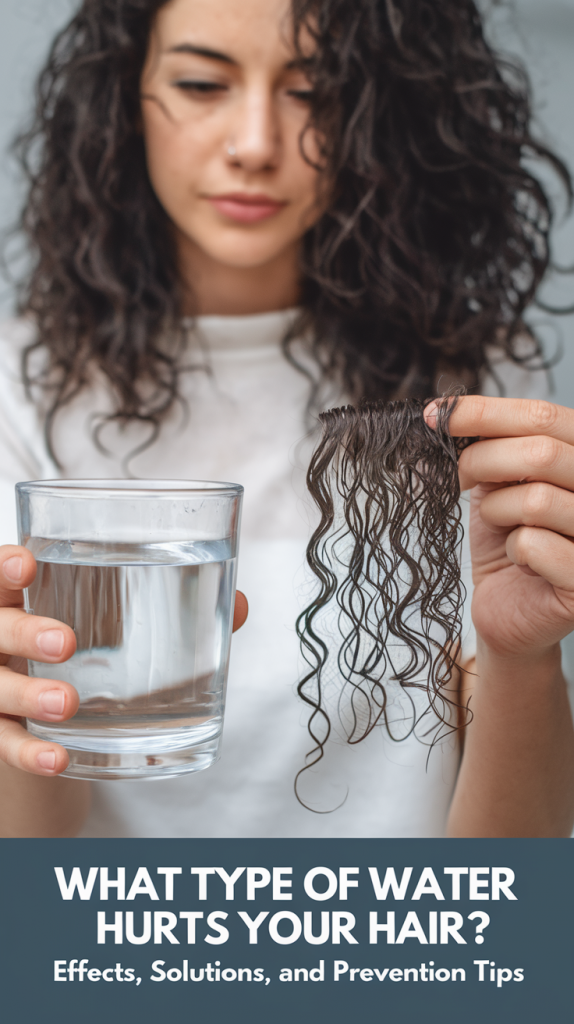What Type of Water Hurts Your Hair?
Hair health is often influenced by products, diet, and routine, but the water you use plays an equally vital role. From hard water to chlorinated pools and even saltwater, the effects on your hair can range from mild dryness to severe damage. Let me share my insights on how different types of water affect hair and what you can do to protect your locks.
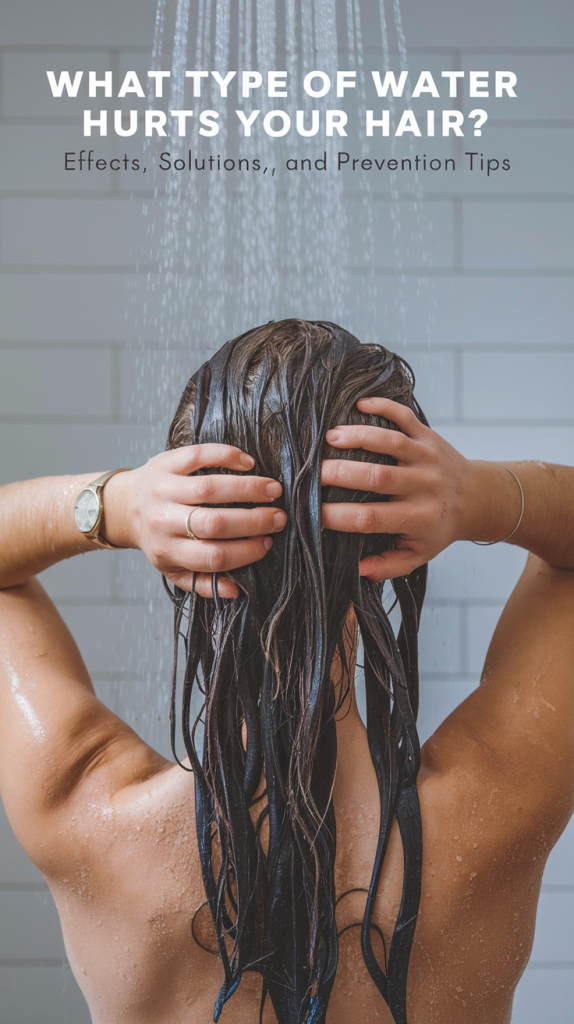
How Hard Water Damages Your Hair
Hard water is rich in minerals like calcium and magnesium, which can accumulate on your hair and scalp over time, leading to several issues:
- Dryness and Brittle Strands: Mineral deposits create a barrier that blocks moisture, making hair dry and fragile.
- Dull Appearance: Hard water can strip your hair of its natural shine and even cause discoloration, such as brassiness or greenish hues.
- Scalp Irritation: The buildup clogs hair follicles, resulting in dandruff, itchiness, or even hair thinning.
Solutions for Hard Water:
- Install a Water Softener: Reduces mineral levels in water.
- Use Clarifying Shampoos: Effective at removing mineral buildup but should be used sparingly.
- DIY Rinse: Apply diluted apple cider vinegar to restore shine and balance.
Hard Water Effects and Remedies
| Effect | Symptoms | Solution |
|---|---|---|
| Dryness and Brittleness | Frizzy, brittle hair | Moisturizing hair masks |
| Dull Appearance | Lack of shine, discoloration | Vinegar rinse |
| Scalp Issues | Dandruff, buildup | Scalp exfoliants, chelating shampoo |
The Impact of Chlorinated Water
Chlorinated water, often found in swimming pools, strips your hair of its natural oils and can weaken the hair cuticle.
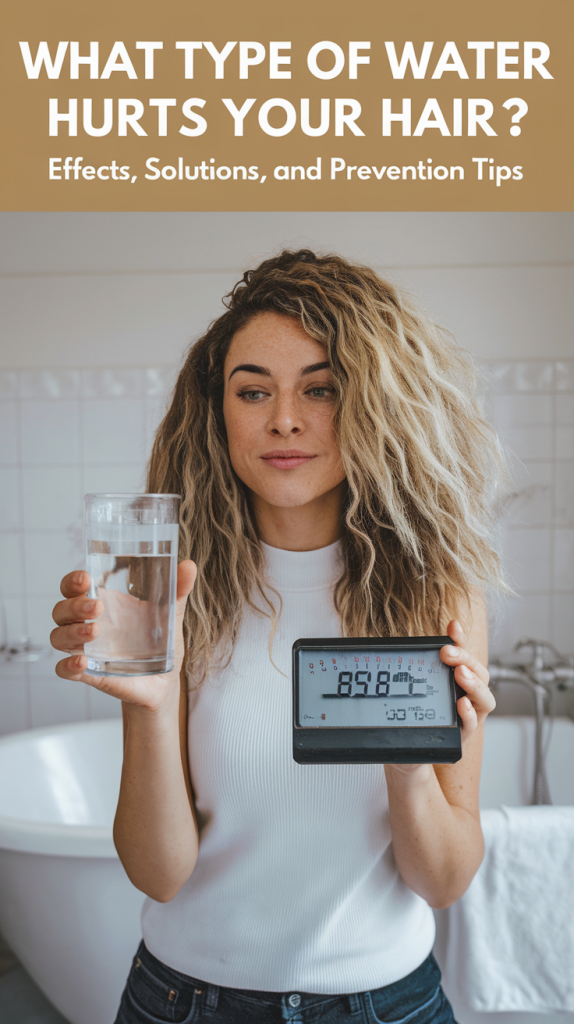
- Increased Porosity: Chlorine raises hair cuticles, making strands more susceptible to damage.
- Faded Hair Color: Chlorine reacts with hair pigments, causing fading or unwanted tones, especially in treated hair.
- Dryness and Frizz: Removes protective oils, leaving hair unprotected and frizzy.
Prevention Tips:
- Pre-Swim Protection: Wet your hair and apply leave-in conditioner before entering the pool.
- Post-Swim Care: Rinse hair immediately after swimming with fresh water and use a clarifying shampoo.
- Barrier Protection: Use swim caps to reduce exposure.
Chlorine Effects on Hair
| Effect | Visible Signs | Prevention |
|---|---|---|
| Increased Porosity | Frizzy, weakened strands | Pre-swim conditioners |
| Faded Hair Color | Discoloration, brassiness | Color-protect shampoos |
| Dryness and Frizz | Brittle, unmanageable hair | Hydrating treatments |
Saltwater and Its Dehydrating Effects
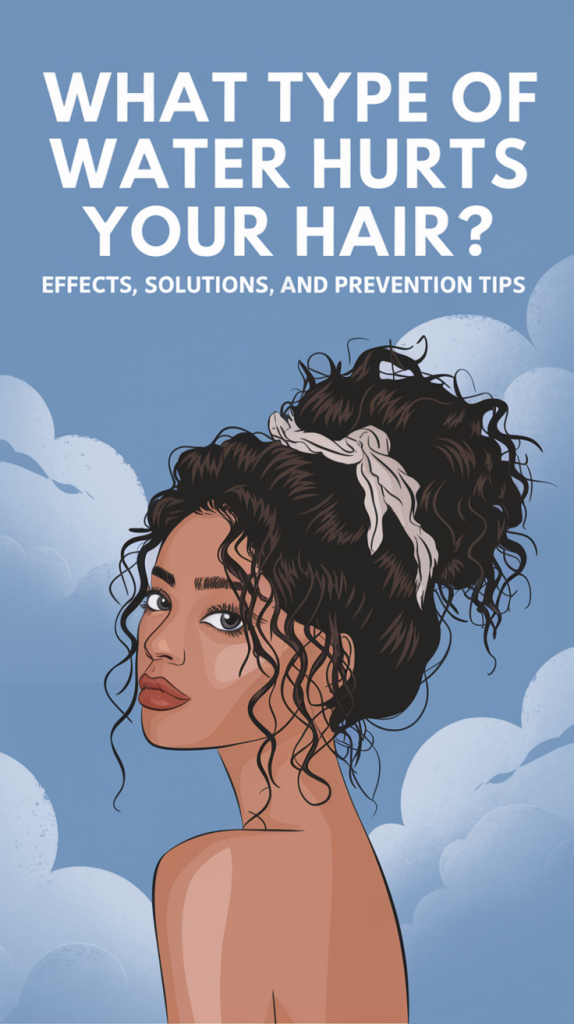
While a day at the beach is fun, saltwater can dehydrate your hair by drawing out its natural moisture.
- Split Ends: The drying effect weakens hair shafts, leading to breakage and split ends.
- Tangles: Salt residue makes hair rough and prone to knots.
- Brittle Hair: Prolonged exposure leaves strands weak and lifeless.
How to Protect Your Hair:
- Rinse Before and After: Saturate your hair with fresh water before swimming and rinse thoroughly afterward.
- Apply Oil or Conditioner: This creates a barrier against salt absorption.
- Hydrate with Masks: Use deep-conditioning treatments to restore lost moisture.
The Role of Water pH Balance
Water’s pH level is another factor that impacts your hair health. Hair thrives at a slightly acidic pH of 4.5–5.5. Water outside this range can cause:
- Alkaline Water: Opens the hair cuticle, making it frizzy and prone to damage.
- Acidic Water: Strips away natural oils, leading to dryness.
Solutions:
- Use pH-balanced hair products to maintain hair health.
- Rinse with a diluted acidic solution, such as apple cider vinegar.
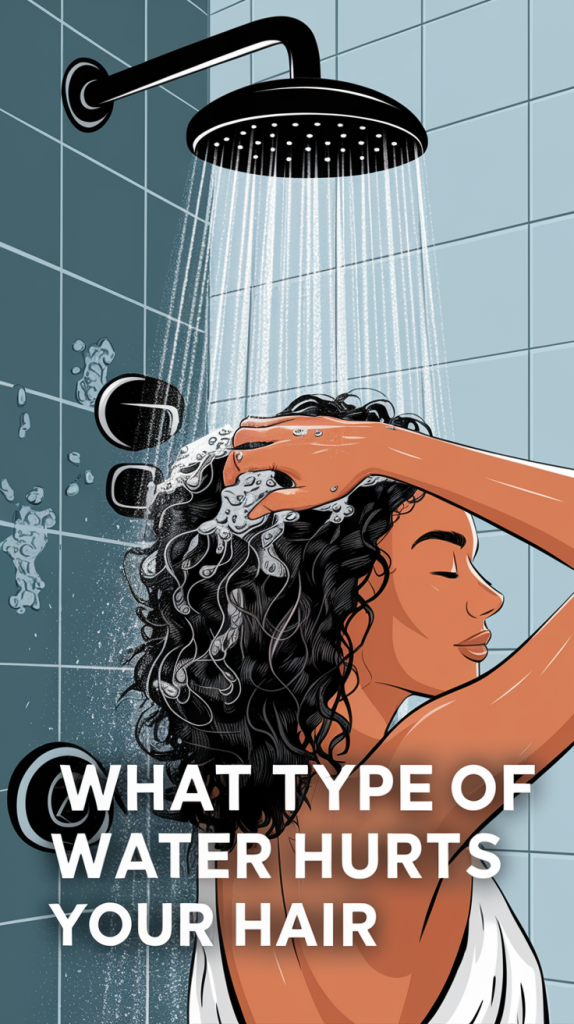
pH Levels and Hair Health
| pH Level | Effect on Hair | Solution |
|---|---|---|
| Alkaline Water | Frizz, breakage | pH-balanced shampoos |
| Acidic Water | Dryness, dullness | Diluted vinegar rinse |
Other Damaging Water Types
Polluted Water:
- Contains heavy metals or industrial contaminants that can damage hair.
- Solution: Install filters or use anti-pollution hair care products.
Soft Water:
- While generally beneficial, soft water may leave hair limp and greasy.
- Solution: Adjust shampoo amounts and use volumizing products.
Conclusion
Water type plays a significant role in hair health. Whether it’s hard water, chlorinated pools, saltwater, or imbalanced pH, each can harm your hair in unique ways. The key to maintaining healthy, vibrant hair lies in understanding your water’s properties and tailoring your hair care routine accordingly. By taking preventive measures, you can protect your hair from damage and ensure it remains your crowning glory.
FAQs
- What’s the most damaging type of water for hair?
Hard water and chlorinated water are the most damaging due to mineral buildup and chlorine exposure. - How can I test my home water quality?
Use water testing kits available online or consult a local service provider to analyze mineral and pH levels. - Does saltwater permanently damage hair?
Prolonged exposure can weaken hair, but regular conditioning and rinsing can minimize long-term effects. - What is the ideal pH level for water to wash hair?
Slightly acidic water, around pH 4.5–5.5, is best for maintaining hair health. - Can water filters really help protect hair?
Yes, water filters reduce harmful minerals and contaminants, preventing buildup and improving hair texture.
